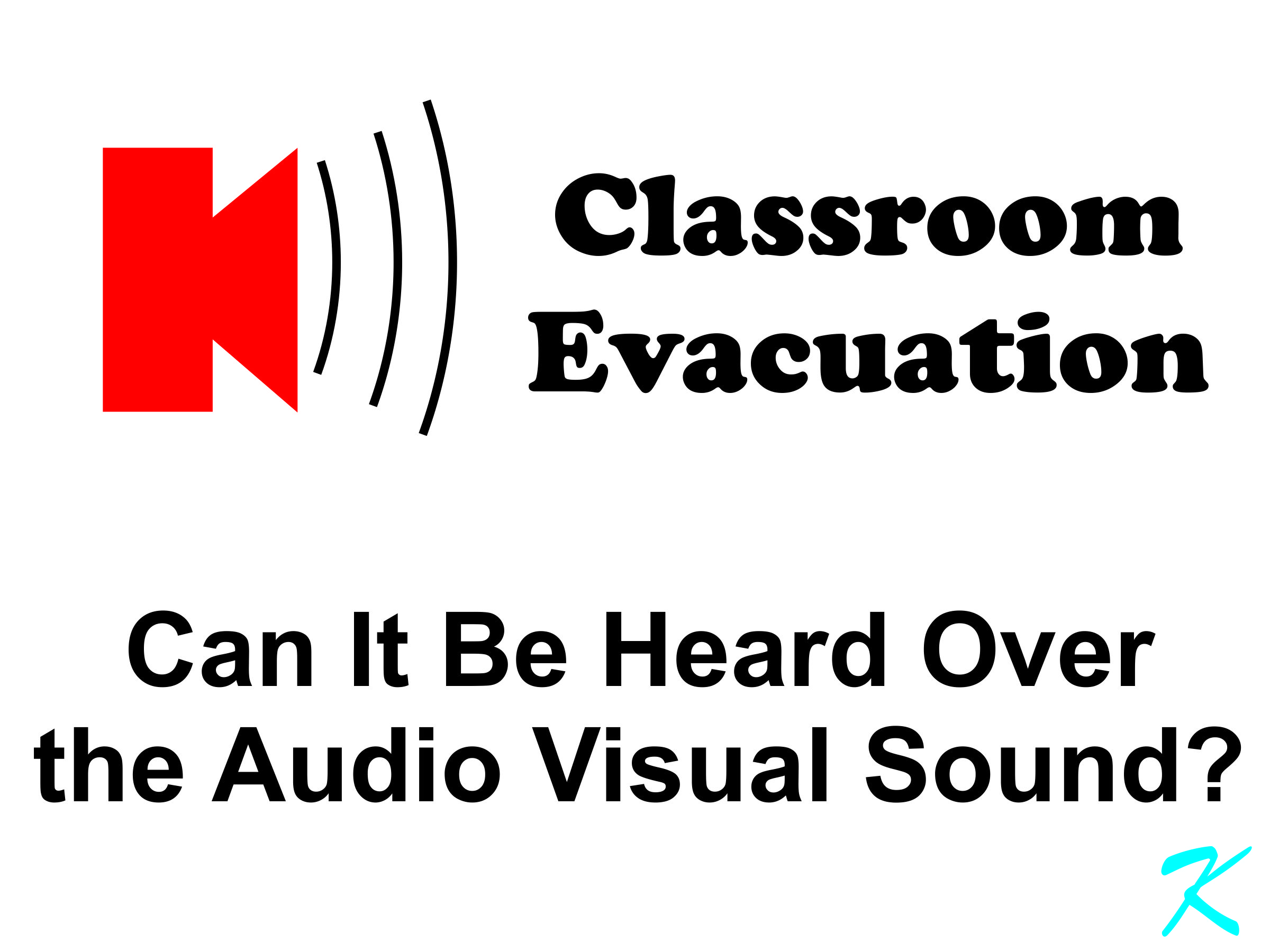There are three things to consider when trying to figure out what can or should be done to turn off the AV sound when the fire alarm evacuation is sounding.
- The Law
- The NFPA 72, NFPA 101, and IBC
- Common Sense Combined with Life Safety
The Law
The Law is only made by the government, it is not made by any private person or publisher. Almost all governments world-wide, though, have decided that for fire protection, the laws they could come up with could not compete with what is written down by the NFPA (National Fire Protection Association), the IFC (International Fire Code), or the IBC (International Building Code).
Rather than rewriting the legal codes for themselves, they have declared that the NFPA Codes and possibly the IBC codes are going to be law.
Because the governments are the ones that make laws, sometimes they add to the codes, subtract from the codes, or even change some of the codes. What the government says overrides anything that is in any published code.
The governments have a vested interest in the safety of citizens. They have appointed someone to oversee the safety concerns, called the fire marshal, fire inspector, or other such name. That person is the primary Authority Having Jurisdiction (AHJ).
The NFPA 72, NFPA 101, and IBC
Those writing the codes in the NFPA and the IBC are private citizens. Their job is not to come up with the best way to protect from fire; their job is to come up with the minimum requirements to protect from fire.
The codes written in the NFPA and IBC are really guidelines, until the government makes them law. To have a good idea of what should be done, go to the guidelines; to know the exact law, go to the fire marshal.
Caution: there are always degrees of safety. The NFPA and IBC show the minimum of what anyone can get away with and still have a safe system. If there are any shortcuts to the system from what is shown in the NFPA or IBC, the system is not safe. Systems that exceed the requirements shown in the NFPA and IBC are better systems.
Common Sense Combined with Life Safety
Stepping back and looking at why, at least sometimes, sound in auditoriums is shunted (turned off) when there is a fire alarm, one can see that it's so the occupants of the auditorium will definitely hear the sound of evacuation, and then take action to get out of the building.
To find out what the law says, talk to the fire marshal. But before that, you might want to test the sound for yourself. Once you've tested the sound, you will be better informed when you do have a discussion with the Authority Having Jurisdiction (AHJ) about fire safety.
The test is fairly definitive. Basically, what you are doing is checking to make sure that the fire evacuation sound can be clearly heard over the AV sound. The numbers that you are looking for is 15 dB above ambient; the fire drill should raise the overall sound level for all occupants of the room by 15 dB. Less than 15 dB and the fire marshal may require that the sound of the AV be shunted when the fire alarm system goes off.
I don't know if Apple has an Ap for the smartphone, but I know that Android has an App to convert the cell phone into a dB (Decibel) meter.
No, your phone is not a "calibrated" measuring instrument, but then the term "Decibel" is a relative term - 15 dB above ambient is a relative term. For making relative dB measurements, your phone is almost as good as any calibrated dB meter.
Set up the phone to be a dB meter, and go into a classroom where you think the students will have the most trouble hearing the fire alarm.
Keep in mind that this test involves performing a fire drill. Anyone still in the building during this test is going to be very annoyed with you, so you will want to perform this test during off-hours. Also, put the fire alarm system on test with the monitoring company, or they may call the fire department also. If the fire department comes for a false alarm, they will become annoyed.
Go to a seat closest to the AV speaker because that will be the worst-case scenario. Turn on the AV sound to the sound levels normally used in the classroom.
By this time, you should have written down on a sheet of paper:
- The Date
- The Time
- Your Name
- The Room You're In
- Where You Are In The Room
- The Setup Of The AV system - Including Volume Levels
- What Is Being Played On The AV system
- The Test Instrument You're Using - Including What Ap Is Being Used Along With Any Settings For The Ap and Phone
Measure the sound level on the dB meter; this is your reference. Write down what you measure.
After writing down what is measured, leave the AV running and perform a fire drill.
Measure the sound level with the dB meter, this is the fire evacuation sound with the AV still operating. Write down what you measure.
Your second reading should be 15 dB higher than the first reading.
If the Fire Drill Isn't Loud Enough
Of course, if you, yourself, have trouble hearing the fire drill, you already know that the AV sound needs to be shunted when there's a fire. To be able to tell someone, if you need to know the law about this, get the fire marshal involved - that's what the fire marshal is there for.
Douglas Krantz
